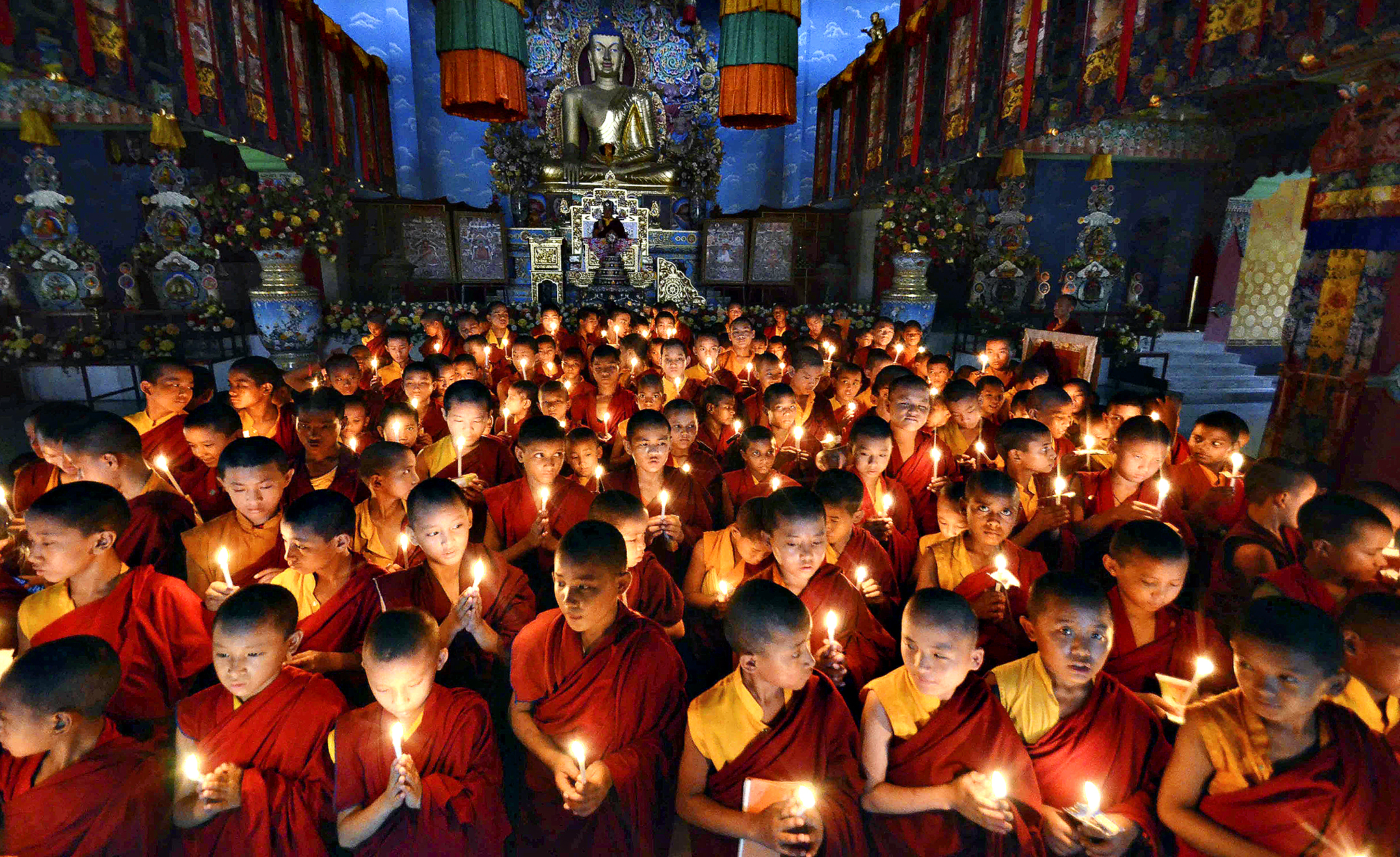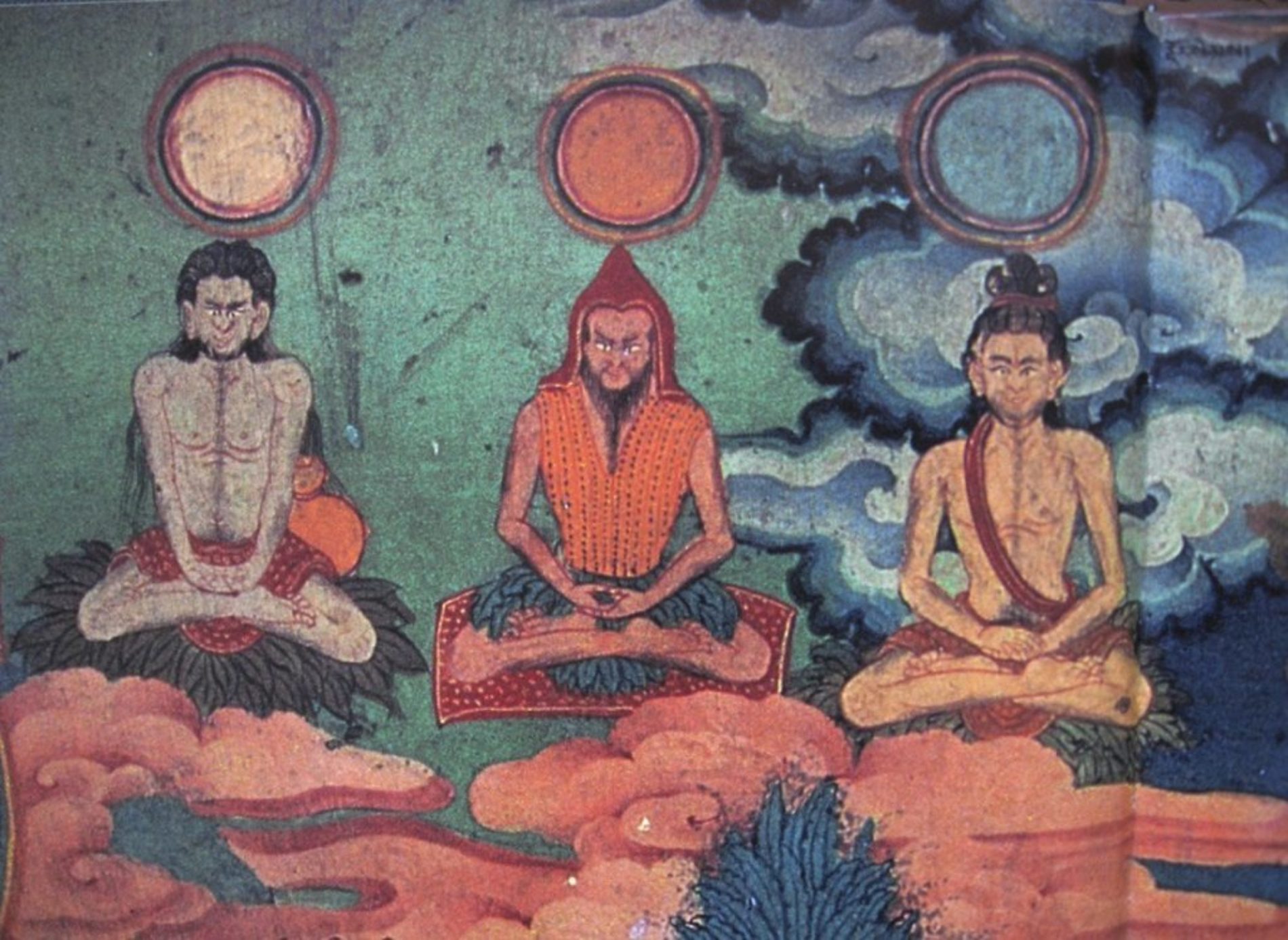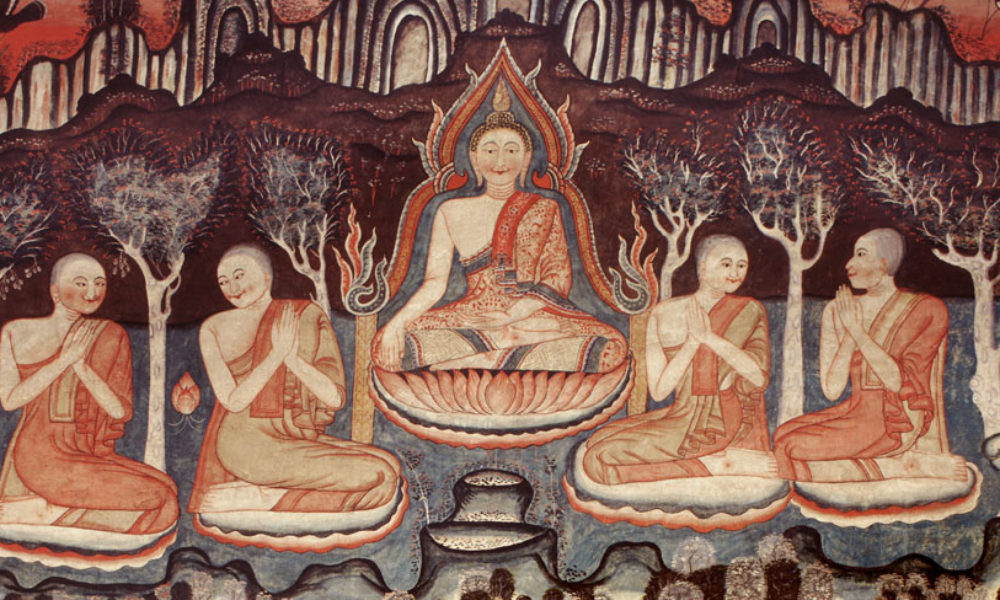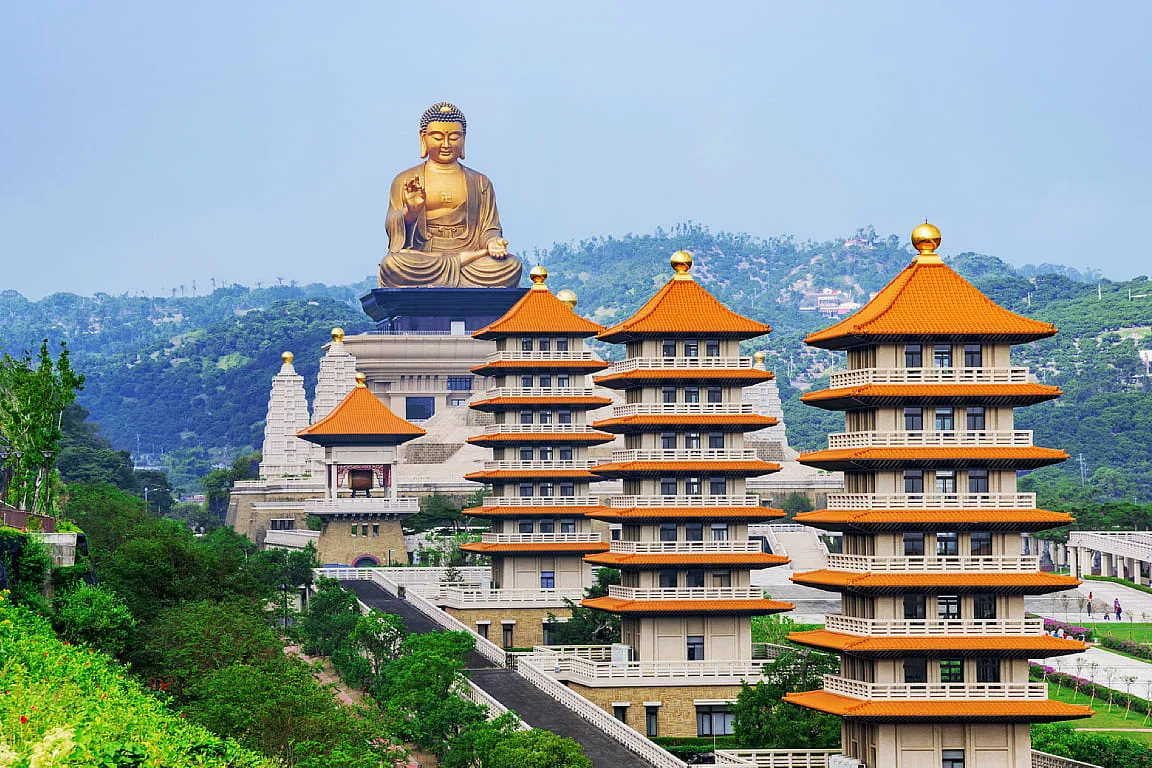Sangha is a community of friends practicing the dharma together in order to bring about and to maintain awareness. But that sangha is more than a community, it’s a deep spiritual practice.
“In the narrowest sense, sangha refers to “the community of monks and nuns.” This meaning can be expanded to include all those who study and practice the buddha dharma and can even embrace all those who love the Triple Treasure, even if they don’t study or practice buddha’s teaching. Furthermore, in a very important sense, sangha can be understood as our “field of refuge”: all those beings we turn to for support, encouragement, and teaching in our practice of dharma. This might even include those who are intentionally cruel to us, if we can understand that they are our great teachers. In the widest sense, sangha includes all beings and indicates “the harmonious interdependence of all beings.
Through the vision of the interdependence of all life, we receive dharma from all beings. In the conventional sense, to speak ill or even unappreciatively of the sangha, in any sense, violates this precept. Ultimately, we disparage the sangha when we overlook or close off any of these resources of awakening. We are in accord with this precept when we fully develop all these resources, moment by moment.”
Tenshin Reb Anderson “Being Upright: Zen Meditation and the Bodhisattva Precepts”
The essence of a sangha is awareness, understanding, acceptance, harmony and love. When you do not see these in a community, it is not a true sangha, and you should have the courage to say so.
In the Buddhist scriptures it is said that Sangha – four communities: monks, nuns, laymen and laywomen.
Taking Refuge in the Three Jewels
By embracing Buddhism, you embark on a journey of seeking refuge in the Three Jewels: Buddha, Dharma, and Sangha. The term “take refuge” stems from the Pali language words sarana-gamana, where sarana signifies a sanctuary or place of safety, while gamana denotes the act of returning. In essence, “refuge” encompasses the notion of seeking solace and protection—a haven to which one turns for guidance and support.
The Significance of Sangha
Among the Three Jewels, taking refuge in the sangha, or community, holds particular importance. It constitutes a profound practice essential for spiritual growth. Without the nurturing environment of a supportive community, individuals may struggle to progress on their path. A dedicated sangha provides invaluable companionship on the journey, offering encouragement and reinforcement in the shared pursuit of spiritual ideals.
The Collective Energy of Sangha
The presence of a vibrant sangha offers a unique opportunity for individuals to immerse themselves in the collective energy of like-minded practitioners. This communal synergy serves as a catalyst for personal transformation, permeating both body and consciousness with the power of mindfulness. By entrusting oneself to the sangha, individuals benefit from the shared commitment to practice and the palpable energy of mindfulness cultivated within the community.
Ethical Foundation of Buddhist Life
Both ordained practitioners and lay followers adhere to the five precepts, which form the cornerstone of ethical conduct in Buddhist practice. These precepts—abstaining from killing, stealing, engaging in sexual misconduct, lying, and consuming intoxicants—serve as guiding principles for leading a virtuous and morally upright life. Upholding these precepts fosters harmony within oneself and the broader community, nurturing the seeds of compassion and wisdom inherent in the Buddhist path.
If you’re reading this, you have your Sangha.
Buddha Land is your Sangha




